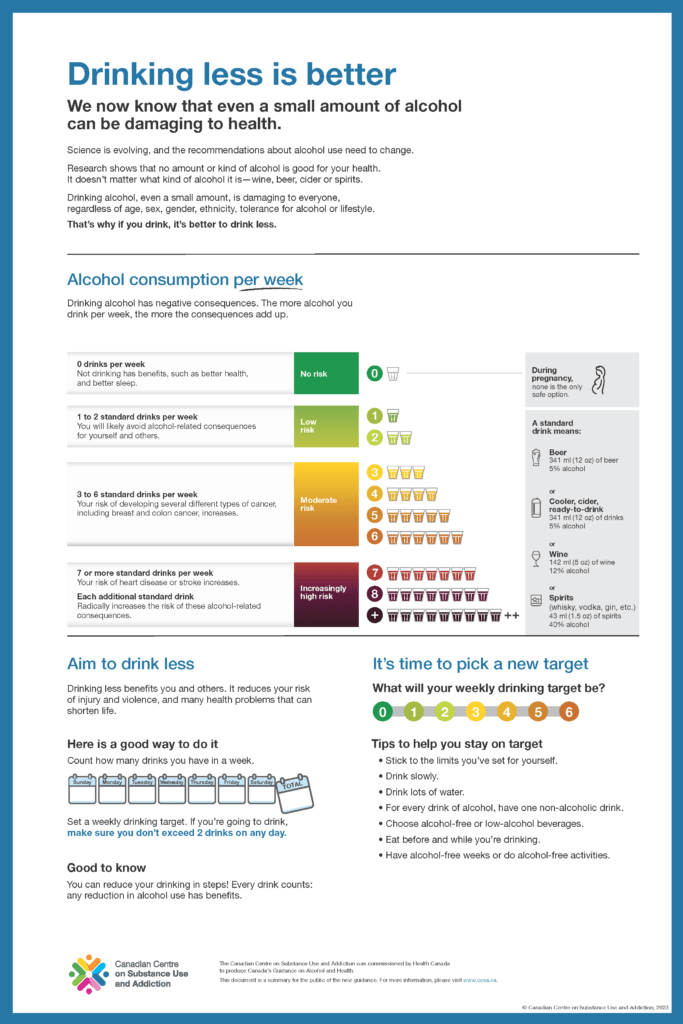Most corporate alcohol policies focus on prohibiting alcohol use during work hours as a means of preventing harms like violence, injuries, fatalities, property damage, criminal charges and fines. At the same time, many workplaces invite and even encourage alcohol use in organized celebrations and impromptu get togethers as a reward for endurance toward corporate goals. Hard work should be rewarded, but is it time to push alcohol to the back of the shelf?
For participants, it really is ok to leave a company event sober and wake up the next morning well-rested.
According to the 2023 guidelines, the best scenario is no alcohol. Most of us probably heard, and contributed to the communal “Not likely!” response the moment the news feed dropped.

On sober second thought (pun intended), as leaders of workforces, maybe we don’t have to win popularity contests by handing out drink tickets and taxi chits when we host events. Maybe we leave the option to drink or not to drink at the door, and instead offer events that don’t lend themselves to drinking culture.
Examples already in use are group passes to:
- indoor activities
- outdoor activities
- cultural events
- family-friendly events
Drinking is a personal choice, but it doesn’t have to be enabled by your employer.
However, worker health and wellbeing is a corporate concern because it directly affects so many aspects of the work environment. So, does it make sense to continue including alcohol in corporate events and having to monitor for (or ignore as the case may be) the tipping point between safe and unsafe consumption?
There are many voices challenging the new guidelines, as there should be in any statement made on the basis of scientific research. Science is all about challenging hypotheses and findings, that’s how it evolves. But even if you disagree with the specific numbers in the new guidelines, those details don’t matter from a corporate health and safety perspective. What matters is that your workforce is healthy and safe on your worksites, and that workers understand the impacts their personal actions, like drinking at company events and elsewhere, have on their fitness to work.
If nothing else, the new guidelines highlight the value in reassessing the purpose and hazards of linking alcohol with corporate events.
NeXafe Partner Cari Chernichen was directly involved in the development of the first version of the oil and gas industry Canadian Model for Providing a Safe Workplace, which was created to address alcohol and drug use in the workplace.










